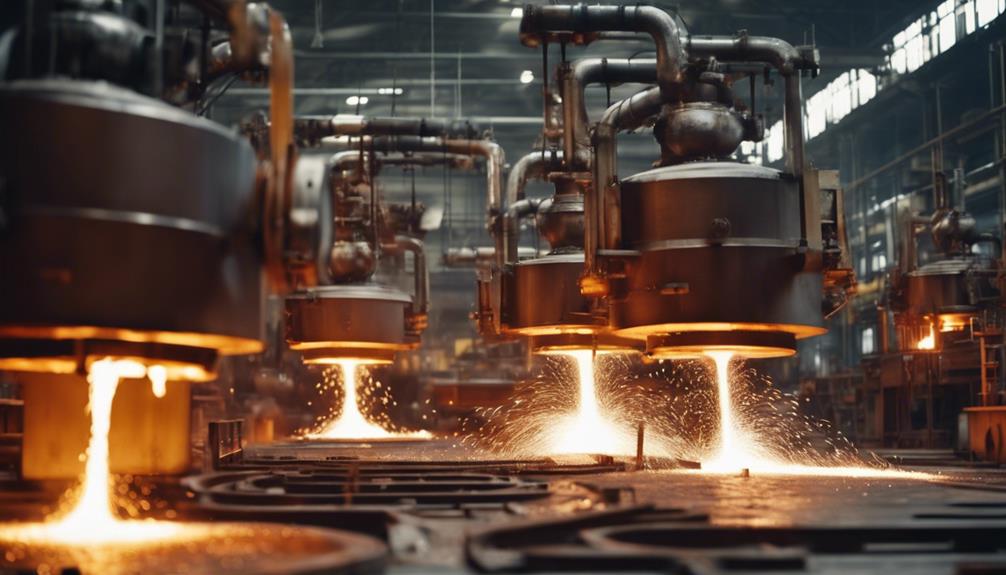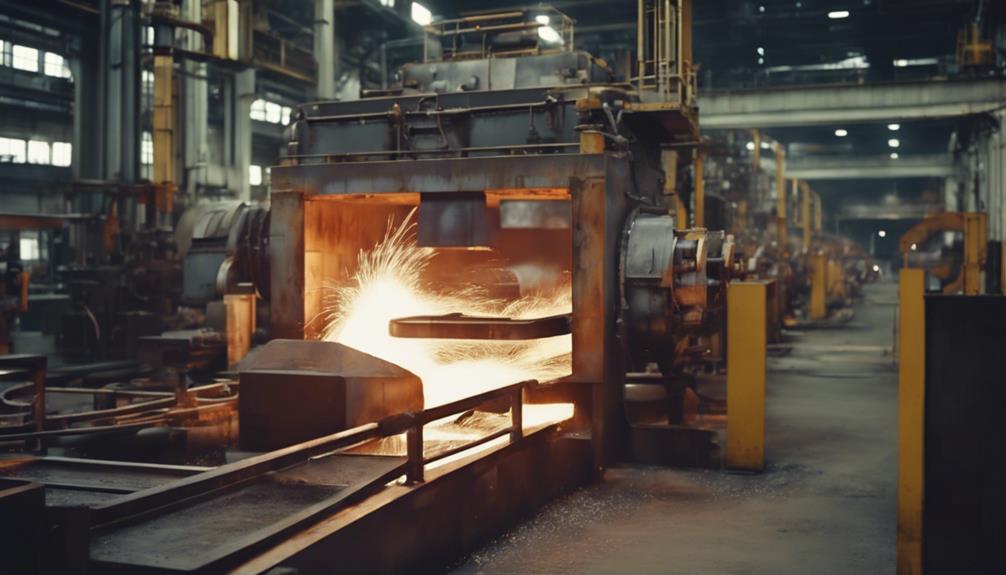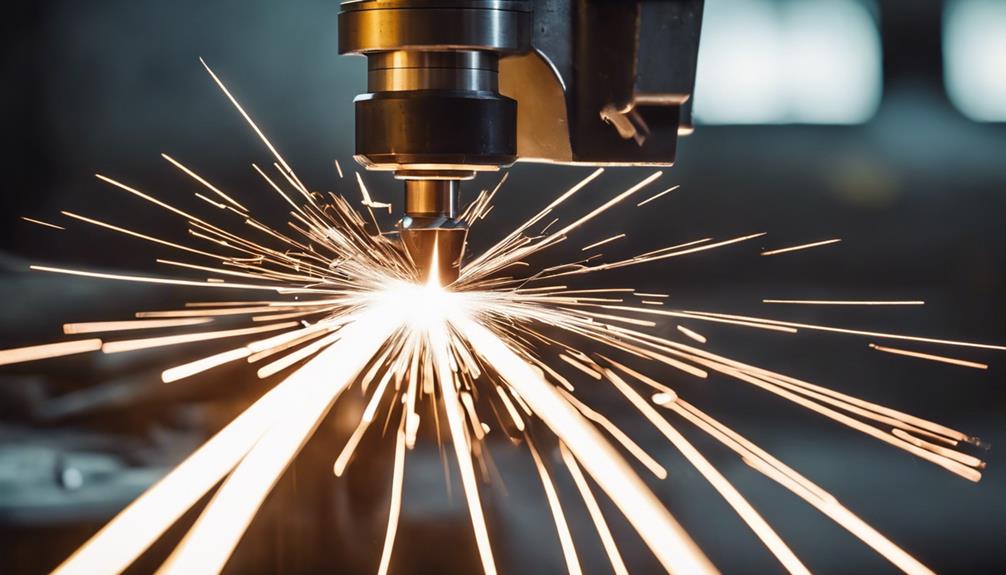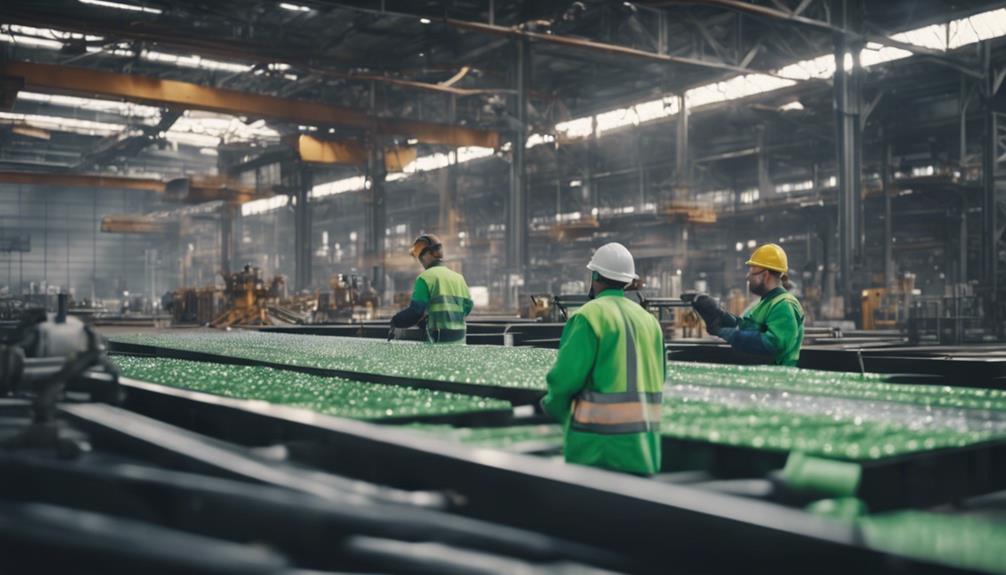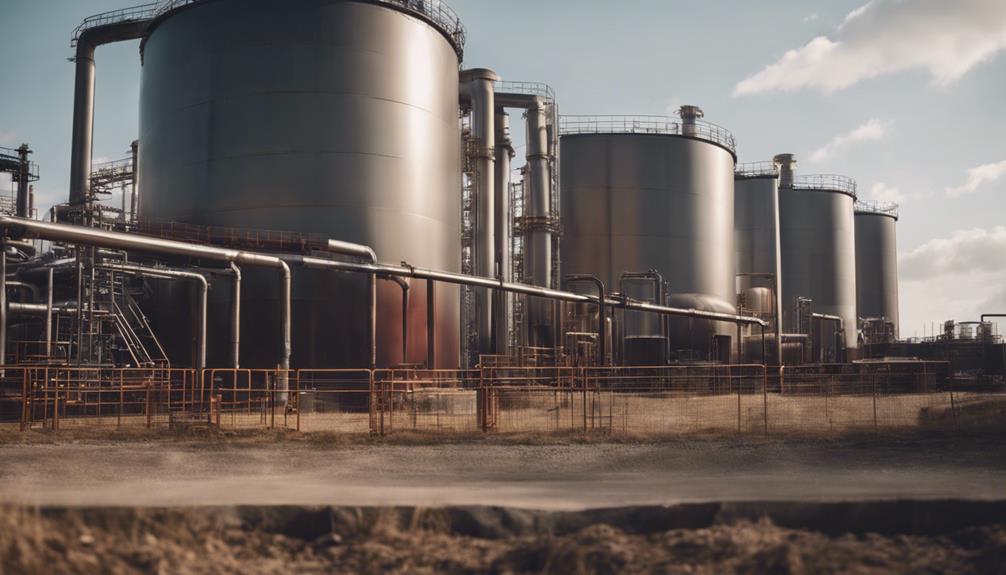
Why Steel Storage Tanks Are the Best Solution for Industrial Storage?
Steel storage tanks excel in industrial storage for their unmatched durability, corrosion resistance, and ability to withstand harsh conditions. They offer versatility across various sectors by safely storing water, chemicals, grains, oil, and gas. With minimal maintenance needs and a long lifespan, steel tanks are a cost-effective solution with a high return on investment. These eco-friendly tanks meet industry regulations, ensuring safe storage of materials. Their reliability and compliance make them the preferred choice. Explore further to discover the extensive benefits steel storage tanks provide for industrial storage.
Key Takeaways
- Steel tanks offer unmatched durability and longevity.
- Highly resistant to corrosion, ensuring long-term performance.
- Superior performance in harsh environments, maintaining water safety.
- Versatile for various industrial needs like storing water, chemicals, and oil.
- Cost-effective with a high return on investment and minimal maintenance requirements.
Durability and Longevity
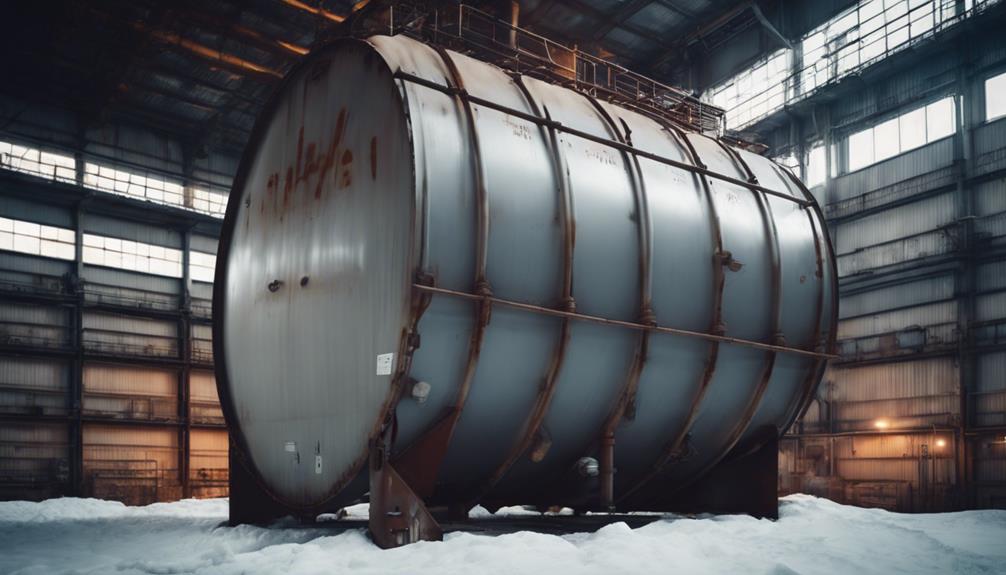
Steel’s renowned resilience and resistance to corrosion make it an ideal material for guaranteeing the longevity and durability of industrial storage tanks. When it comes to storing various liquids or gases, steel storage tanks, including stainless steel storage tanks, stand out for their exceptional durability. These tanks are specifically designed and constructed to withstand the test of time, providing a reliable and long-lasting storage solution for industrial applications. The durability of steel storage tanks guarantees that they can endure harsh conditions, maintain structural integrity, and resist corrosion, making them a superior choice for long-term storage needs in industrial settings.
Investing in steel storage tanks guarantees not only exceptional durability but also longevity, offering a sound and reliable storage solution for businesses. Prefabricated steel tanks, known for their strength and corrosion resistance, are a wise investment for industries looking for a dependable storage option that can withstand the rigors of continuous use. Overall, the durability of steel storage tanks makes them a preferred choice for meeting industrial storage requirements efficiently and effectively.
Resistance to Corrosion
With its exceptional resistance to corrosion, stainless steel storage tanks offer unmatched durability and reliability for industrial storage applications. Stainless steel tanks are highly resistant to corrosion, ensuring long-term performance and minimal maintenance costs.
Unlike other materials, stainless steel does not rust or corrode, making it a superior choice for storing various liquids, including water. The corrosion-resistant nature of stainless steel helps prevent degradation, maintaining water quality over time and reducing the risk of contamination.
This resistance to corrosion is a key factor in why steel water tanks are preferred for industrial storage needs, guaranteeing a safe and reliable storage solution.
While the initial stainless steel tank price may be higher than other options, the long-term cost-effectiveness and durability make stainless steel tanks a wise investment for industrial applications, where performance and reliability are paramount.
Superior Performance in Harsh Conditions
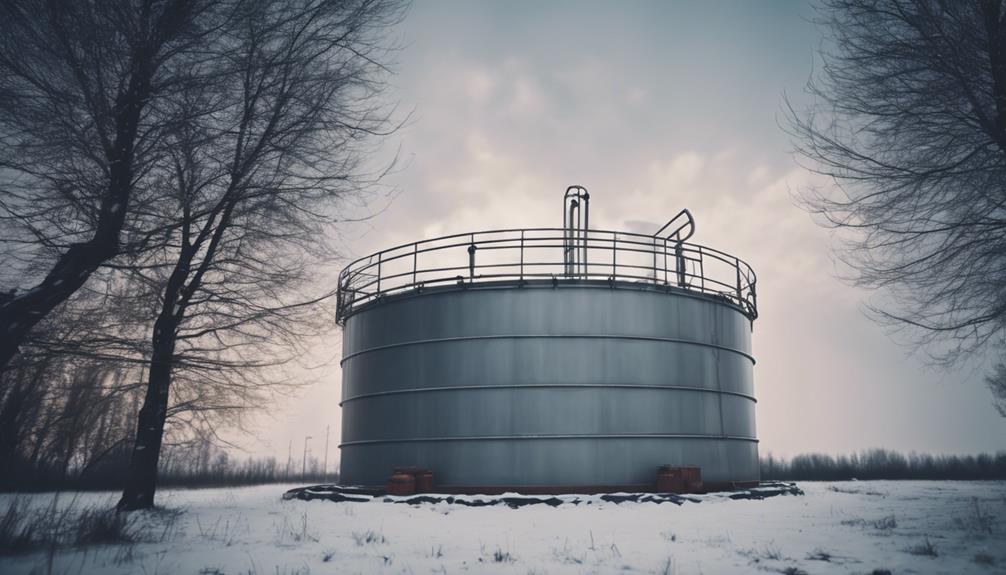
Stainless steel storage tanks demonstrate exceptional durability and resilience in harsh conditions, ensuring reliable performance and protection for industrial storage requirements. Their ability to excel in challenging environments sets them apart from traditional tanks made of plastic or concrete.
Steel storage tanks offer unparalleled longevity, outlasting other materials and maintaining water safety and quality over time. The superior performance of steel tanks in harsh conditions makes them a wise long-term investment for industrial applications where reliability is paramount. These tanks provide secure protection for stored materials, ensuring excellent performance in demanding settings.
With their resistance to corrosion and degradation, steel storage tanks stand as a robust solution for industrial storage needs, offering a combination of strength and durability that is essential for safeguarding valuable resources and maintaining operational efficiency in the face of harsh conditions.
Versatility in Industrial Applications
Demonstrating guarantee across diverse industrial sectors, steel storage tanks serve as versatile solutions for a wide array of storage requirements. These tanks are utilized for various industrial applications, from storing drinking water and rainwater to chemicals, grains, and oil and gas.
Their ability to withstand extreme temperatures and compatibility with different water treatment methods make them suitable for a broad range of storage needs. The robust construction of steel tanks guarantees reliable water storage in diverse industrial contexts while upholding quality and safety standards.
Additionally, the customization options available with steel tanks enable tailoring to specific industrial requirements, making them a highly flexible solution for different storage needs. Overall, steel tanks provide a cost-effective and durable storage solution for industrial applications, offering long-term reliability and performance across a multitude of industries.
Cost-Effectiveness and ROI
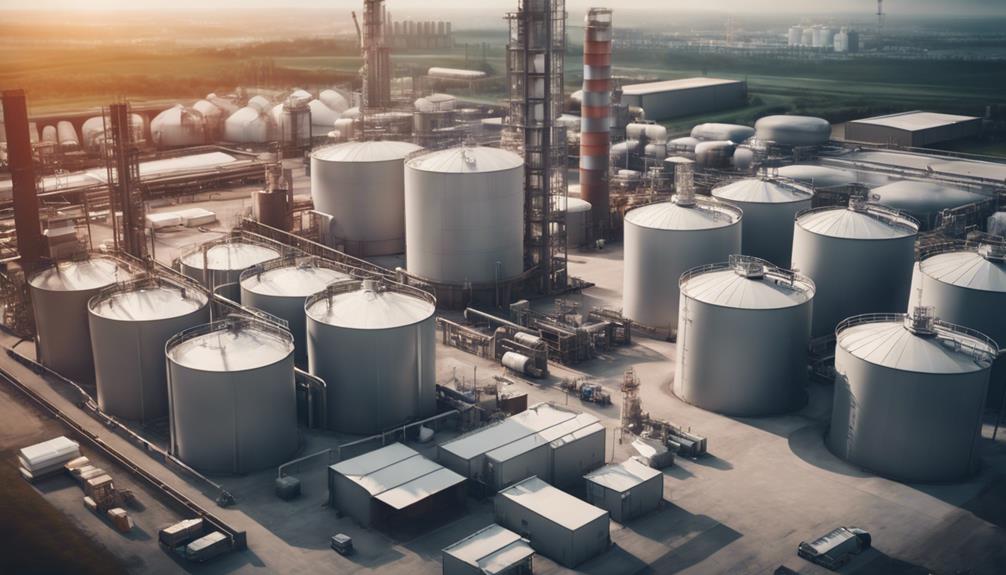
Steel storage tanks demonstrate exceptional cost-effectiveness and a high return on investment due to their long lifespan and minimal maintenance requirements. The initial investment in a steel tank is offset by its durability, which greatly reduces the need for frequent repairs or replacements. This reliability guarantees that the long-term cost of ownership is lower compared to other storage tank materials.
Steel tanks offer a superior cost-to-benefit ratio over time, making them a financially sound choice for industrial storage needs. Additionally, the resistance of steel tanks to corrosion and wear further enhances their return on investment by reducing operational costs associated with maintenance and potential leaks.
Eco-Friendly and Sustainable Solution
An environmentally conscious choice for industrial storage solutions, steel tanks offer a sustainable and eco-friendly option for businesses aiming to reduce their carbon footprint and uphold responsible practices.
Stainless steel, a primary material used in these tanks, is highly sustainable and recyclable, greatly minimizing environmental impact compared to plastics.
The recyclability of steel tanks is remarkable, as they can be recycled indefinitely without any loss in quality, making a positive contribution to environmental preservation efforts.
Easy Maintenance and Long-Term Reliability
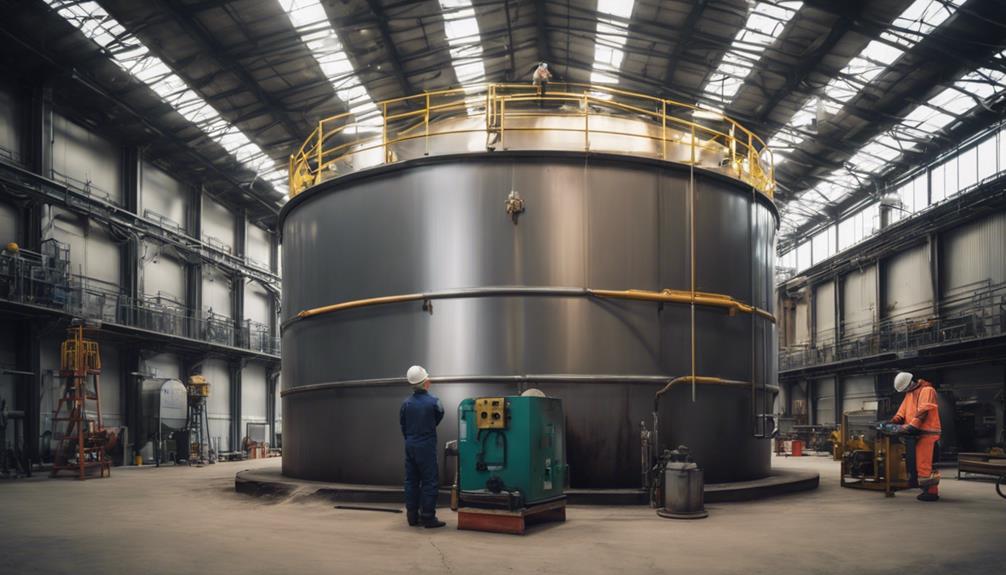
Ensuring operational efficiency and durability, steel storage tanks boast minimal maintenance requirements and long-term reliability in industrial settings. Their durable and corrosion-resistant nature reduces the need for frequent upkeep, making them a cost-effective choice for storage solutions.
Steel tanks are known for their long-term reliability, providing consistent performance over many years without compromising quality. Not only do they offer reliability, but they also help save on operational expenses due to their lower maintenance costs compared to tanks made from other materials.
The robust construction of steel tanks greatly decreases the risk of leaks or failures, ensuring the safety of stored materials. This easy upkeep and dependable performance make steel storage tanks a preferred choice for various industrial storage needs where reliability and low maintenance are key considerations.
Compliance With Industry Regulations
In alignment with stringent industry standards, steel storage tanks demonstrate adherence to regulatory requirements for the safe containment and handling of various materials.
These tanks comply with industry regulations, such as API standards, guaranteeing the safe storage of petroleum products and meeting specific criteria for environmental protection, fire safety, and structural integrity.
By complying with regulations, steel tanks are designed to prevent leaks, spills, and contamination, thereby meeting strict industry standards and minimizing risks associated with hazardous materials.
The adherence to these regulations not only ensures operational safety but also plays a significant role in protecting the environment from potential harm.
Compliance with industry regulations is integral to the safe handling, storage, and transportation of materials, highlighting steel storage tanks as a reliable and secure solution for industrial storage needs.
Frequently Asked Questions
What Are the Benefits of Steel Tanks?
Steel tanks provide durability, water purity, hygiene, eco-friendliness, and versatility. Their resistance to corrosion, rust, and degradation guarantees long-term reliability. With a smooth surface, they are easy to clean and maintain, thereby preventing bacterial growth.
Why Steel Tanks Are Used for Storage of Hot Water?
Steel tanks are chosen for storing hot water due to their durability, resistance to corrosion, and non-reactive nature. They maintain water purity, do not leach harmful chemicals, are easy to clean, and guarantee a continuous, safe supply.
Which Is Better Plastic Tank or Steel Tank?
When comparing plastic tanks to steel tanks, steel tanks surpass in durability, purity, hygiene, sustainability, and versatility. Steel tanks resist corrosion, do not leach chemicals, are easy to clean, recyclable, and provide reliable water storage solutions for various applications.
What Are Industrial Storage Tanks Used For?
Industrial storage tanks are vital for safely storing substances like water, chemicals, oils, and grains in various industries such as agriculture, manufacturing, oil and gas, and water treatment facilities. They guarantee a reliable supply of essential materials for industrial processes.
Conclusion
To sum up, steel storage tanks offer superior durability, resistance to corrosion, and performance in harsh conditions, making them the best solution for industrial storage needs.
Their versatility, cost-effectiveness, and eco-friendly nature further enhance their appeal in various industrial applications.
With easy maintenance and long-term reliability, Steel Storage Tanks also guarantee compliance with industry regulations, providing a sustainable and reliable storage solution for businesses.

